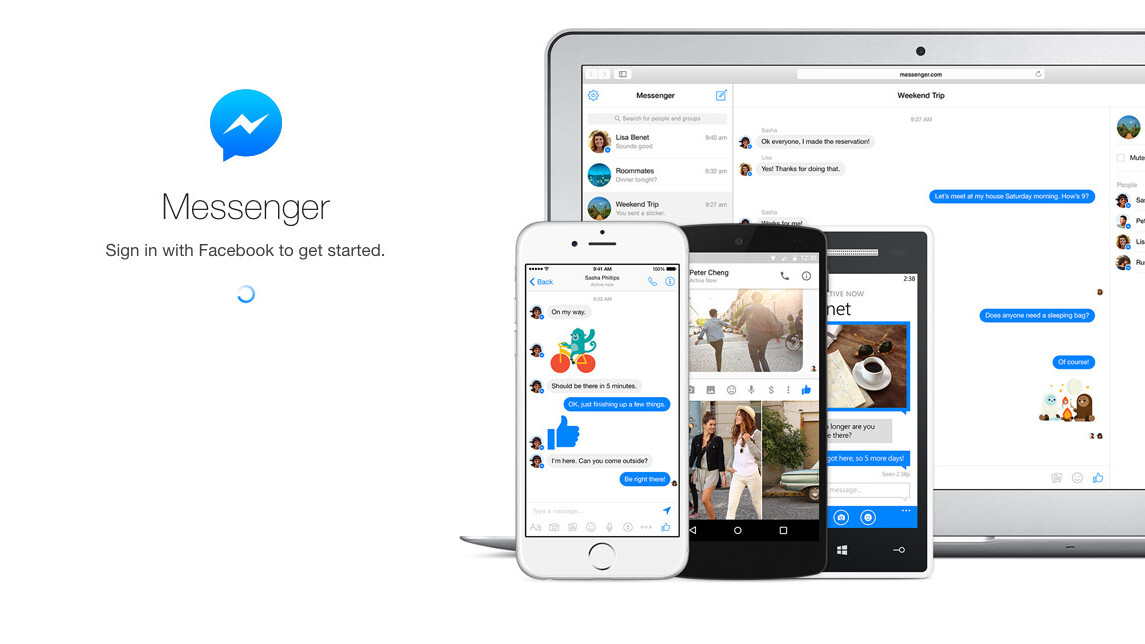
Recently Facebook announced its take on the Virtual Assistant, M, which is to be supported by a human workforce, to help you get things done. It’s been billed as an improved version of Google Now or Apple’s Siri; a virtual assistant with – crucially – real life operators to go beyond its competitors’ functionalities, booking restaurants of buying gifts.
It’s a significant step, with profound implications for Facebook’s future place in all our lives. As the big tech companies vie for ownership over our interactions with the world, we might not be far away from having Facebook arrange our dry cleaning, turn on our heating, or bring us food when we’re hungry.
At TH_NK we have been tracking, and investing our learning into, an interesting shift that has been brewing for some time. The interface, which is traditionally our gateway to a digital world filled with the apps, tools and services we love, is slowly transforming into a single, intelligent destination. And messaging – which dominates our smartphone usage – sits right at the heart of this.
This latest move by Facebook is just one in a long line made this year, and building on what’s becoming a remarkably clear direction of travel. We’ve seen the acquisition of Natural Language Processing (NLP) company wit.ai, the opening of their Artificial Intelligence Lab in Paris, and the evolution of Messenger into a platform.

It would seem then that Facebook has drawn the same conclusion as many before them, that messaging as an interface, assisted by a combination of a human network and bots helping us do our chores is worth the effort. Certainly, the development of what’s known as conversational user interfaces (CUI), whereby you use language through text input to engage with a computer, is more natural than the graphical user interface (GUI) of interacting with images on a screen.
Yann Lecun, in charge of the group’s Artificial Intelligence since December 2013, has spoken of a revolution on its way. Mike Schroepfer, the company’s CTO, has said of Facebook in general that “eventually it is like this super intelligent helper that’s plugged into all the information streams in the world”. The company has been pretty open about where they see things going.
In one sense, Facebook’s been a little late to the party but the focus is incredibly on time. The combination of messaging with human and bot assistance is everywhere and provides a powerful, and game changing UI paradigm. You just need to look at the acquisitions, announcements and recent products from Apple, Google, Amazon, Twitter and Microsoft.
Tencent Wechat have just invested $50 m in messaging app Kik. And then there are the start ups; With GoButler you can order food, book travel and more. Awesome, whilst offering similar capability goes one step further and offers help to teams and start ups, such as researchers finding and analysing information on your behalf. Startups like Assist enable you to ask where to eat, drink, stay or explore, letting you reserve and pay.

Facilitated through a mix of bot and the local businesses. Inbox is a personal sales assistant, which promises to take away the sales bureaucracy and let you focus on being a better salesman. We’ve recently been impressed by Moov, which recently announced their AI Cloud providing real time coaching as you run. Using a clever mix of sensors and cloud processing, the coach advises you on how you run more effectively, providing motivation and improvement strategies along the way.
Messaging platforms like Telegram, and everybody’s favourite, Slack both let you integrate and build bots to help you further, automating small mundane tasks. Of course, all whilst communicating with your peers in the real time flow of work.
And far out? Have a look at chatting with Xiaoice on China’s Wechat platform.
The vision of having an intelligent, virtual agent is big. A moonshot if you like. Above anything else, the ease of interacting with an intelligence working on our behalf, ordering and booking things, scheduling, searching and retrieving recommendations has the potential to ease the next billion people into the digital world in a far simpler manner than the myraid of interfaces do now.
Why is this any different?
Certainly assistive bots have been around for a long time, as has the messaging interface, and the concept of the conversational user interface. We don’t know if Facebook M will succeed of course, but there is plenty to suggest that they have placed a bet on the right course.
Firstly, they haven’t underestimated the power of text. Voice may be the end game but text is the most flexible and translatable communication format humans have so far have come up with. Its death has been greatly exaggerated.
Secondly, messaging is one of the few universally understood design patterns we have – much more than forms and website’s graphical user interfaces. Its model is a conversation, with participants, shared understanding and a common outcome.

Thirdly by using a conversational UI we’re cutting straight to users intent, rather than say in a GUI (read conventional web page) waiting for a user to trigger it by clicking or tapping a call to action. Don’t underestimate this. Moving from searching for services, or even content, to ‘casting’ our intent for these things hints at a powerful shift in the way we interact online.
Finally they’ve got the idea of being assistive over artificial. You see, we’re an intolerant lot, full of quirks, illogic and emotion. It turns out we don’t really like things, especially robots, behaving too human, because they inevitably turn out to be bad versions of ourselves. So those services that work this out have found ways to make the artificial intelligence component more assistive, in the Facebook M case by handling the upfront conversation and passing to humans. In other cases this may be by structuring the conversations around specific intentions, less open ended, so we never ever hit a “computer says no” moment, or dead end.
Is this what our web interface of the future looks like?
If Facebook’s newsfeed manoeuvres felt a little like attempting to pull the entire web under the blue bar, should we be worried about this? We think not, or at least the battle for the single interface has a way to rage, and there is no reason to think Facebook will necessarily win, or someone won’t come along and change the rules of the game. If you think of a browser or an app as an interface agent to a service or content, you can imagine a future where a lot of “apps” and web pages are assimilated into a single interface, where apps become service “plug-ins” rather than outright apps, and content and web pages become cards.
Will this spell the death of the browser, our current web interface agent? Maybe or maybe that’s what the browser evolves into. Perhaps it’s the operating system of the future. Ultimately it doesn’t matter, the web isn’t going anywhere, it’s just the way you interact with it that may change. And as ever, it’s ours to be built, no matter what they tell you.
Read Next: Facebook’s M is a Siri-like personal assistant for Messenger
Image credit: Shutterstock
Get the TNW newsletter
Get the most important tech news in your inbox each week.




